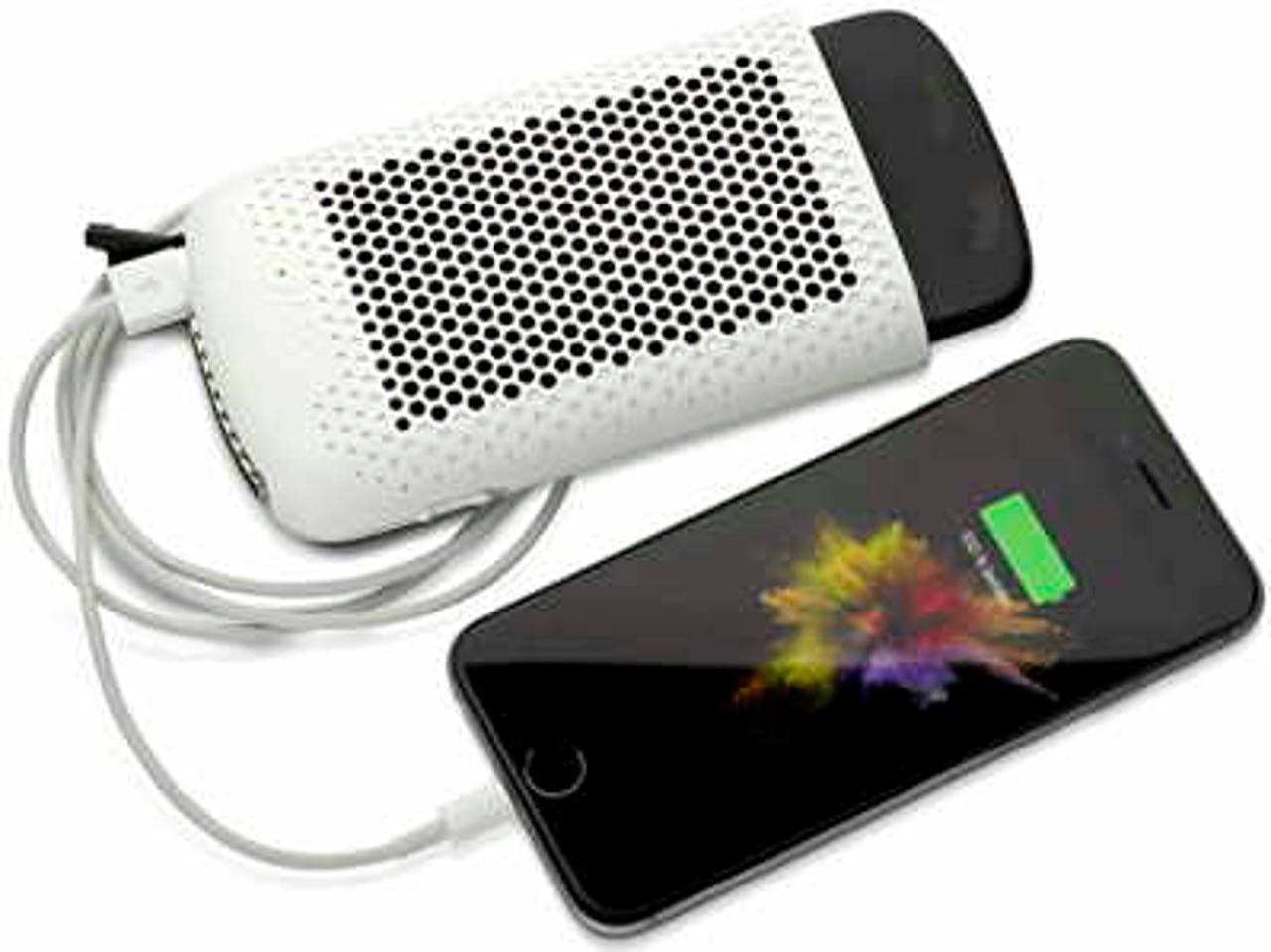Fuel cells come of age at CES 2016

The first fuel cells were developed in the 1830s, but the technology did not win commercial use until the 1960s in the Gemini space capsules. Their ability to provide clean power free of noxious exhaust as well as drinking water made them a natural for spacecraft.
Like batteries, fuel cells have an anode, a cathode, and an electrolyte. Unlike batteries, fuel cells sport a replaceable electrolyte, whose presence starts the power generation process.
There are more than a dozen fuel cell designs, but for portable use magnesium-air cells with a salt water electrolyte are the safest.
JAQ

JAQ unit
Swedish company MyFC showed off JAQ, a compact fuel cell designed to provide an 1800ma charge to smartphones. Itself the size of a smartphone, the JAQ uses thin, light plastic cartridges that you insert when you need a charge.
A USB port delivers the power to your device's charge cable. If you're on an extended trip you can pack a number of cartridges for on-the-go recharges. The unit is about $99 with $2 cartridges.
Aqua Power Systems
A second practical fuel-cell comes from Japanese company Aqua Power Systems. They have sold 8 million fuel-cell water-activated AA batteries and fuel-cell lanterns in Japan. Now they're bringing their newest products - a USB charger lantern and a charger-only cell - to the US.
Power bank with lighting unit
The latter unit can charge a smartphone 20 times before the magnesium plates need replacing. Add 6-10 percent salt water to the unit and you are ready to go. With a shelf life of 20 years and 30,000mAh of power this is a stand-by power source for when all else fails.
Pricing for these units should be in the $50 range.
The Storage Bits take
These fuel cells aren't a substitute for grid power. But if you frequently find yourself off-grid - or fear you might be - these clean, non-toxic, stable systems could keep your phone online and your home or camp lit.
Comments welcome.